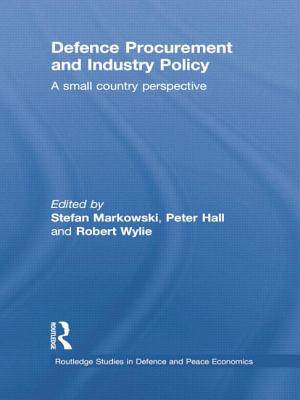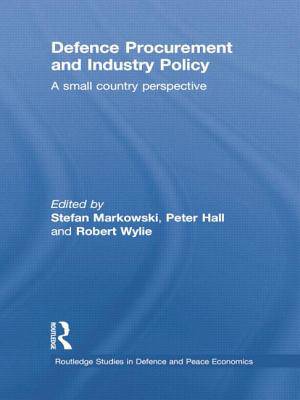
- Afhalen na 1 uur in een winkel met voorraad
- Gratis thuislevering in België
- Ruim aanbod met 7 miljoen producten
- Afhalen na 1 uur in een winkel met voorraad
- Gratis thuislevering in België
- Ruim aanbod met 7 miljoen producten
Defence Procurement and Industry Policy
A Small Country Perspective
Omschrijving
Arms purchases are among the most expensive, technologically challenging and politically controversial decisions made by modern-day governments. Superpower spending on weapons systems is widely analysed and discussed. But defence procurement in smaller industrial countries involves different issues which receive less attention. This volume presents a general framework for understanding smaller country defence procurement supported by country, industry and project studies.
Part I provides a general framework for analysing smaller country defence procurement, focusing on the formation of national defence capabilities. The framework is then used to analyse issues around the development of procurement demand, the characteristics of defence industry supply, contracts and relationships between buyers and sellers, and government policy for defence procurement and industry development. Part II focuses on defence procurement in seven smaller industrial nations with widely varying historical and political settings (Australia, Canada, Israel, Singapore, Spain, Sweden and The Netherlands). Part III consists of two Australian case studies of the procurement issues raised in, respectively, the naval shipbuilding industry and in a major, complex defence project.
The book addresses the needs of public and private sector managers, military planners, procurement specialists, industry policy-makers, and defence procurement and industry educators. It presents general principles in an accessible manner and points to real-world experience to illustrate the principles at work. Therefore it will be of interest to scholars and practitioners in defence economics, strategic procurement, public sector procurement, and defence industry policy.
Specificaties
Betrokkenen
- Uitgeverij:
Inhoud
- Aantal bladzijden:
- 416
- Taal:
- Engels
- Reeks:
Eigenschappen
- Productcode (EAN):
- 9781138805446
- Verschijningsdatum:
- 23/06/2014
- Uitvoering:
- Paperback
- Formaat:
- Trade paperback (VS)
- Afmetingen:
- 152 mm x 229 mm
- Gewicht:
- 566 g

Alleen bij Standaard Boekhandel
Beoordelingen
We publiceren alleen reviews die voldoen aan de voorwaarden voor reviews. Bekijk onze voorwaarden voor reviews.











